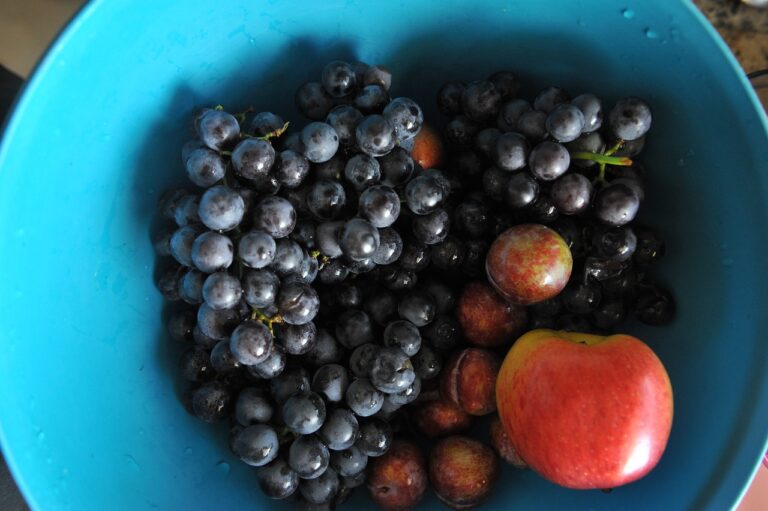Promoting Sustainable Food Choices Through Community Food Initiatives: Allpanelexchange, Lotus365 book, Laser book 247
allpanelexchange, lotus365 book, laser book 247: Promoting Sustainable Food Choices Through Community Food Initiatives
Are you looking to make more sustainable food choices but aren’t sure where to start? Community food initiatives are a great way to get involved and support local, environmentally-friendly food systems. By participating in community gardens, farmers’ markets, and other collaborative efforts, you can not only improve your own health but also contribute to the well-being of the planet.
In this article, we’ll explore how community food initiatives promote sustainable food choices and provide some tips on how you can get involved. Let’s dive in!
Benefits of Community Food Initiatives
1. Supporting Local Farmers: Community food initiatives often prioritize sourcing food from local farmers and producers. By buying local, you are reducing the carbon footprint associated with transporting food long distances. Additionally, supporting local agriculture helps to preserve farmland and promotes biodiversity.
2. Reducing Food Waste: Many community food initiatives work to minimize food waste by creating systems for sharing excess produce and organizing community composting programs. By participating in these initiatives, you can help reduce the amount of food that ends up in landfills.
3. Building Community Resilience: Community food initiatives provide opportunities for people to come together, share knowledge, and support each other. By working collaboratively, communities can build resilience to challenges such as food insecurity, climate change, and economic disruptions.
4. Improving Food Access: In many communities, access to fresh, healthy food is limited. Community food initiatives, such as food banks, community gardens, and farmers’ markets, can help increase access to nutritious food for all residents, regardless of their income level.
How to Get Involved
1. Join a Community Garden: Community gardens are a great way to connect with nature, learn new gardening skills, and grow your own food. Many community gardens also offer educational programs and workshops on topics such as organic gardening, permaculture, and food preservation.
2. Shop at Farmers’ Markets: Farmers’ markets are a vibrant hub of local food and culture. By shopping at farmers’ markets, you can support small-scale farmers and artisans while enjoying fresh, seasonal produce. Many farmers’ markets also offer opportunities to connect with the people who grow your food and learn more about sustainable agriculture practices.
3. Volunteer at a Food Bank: Food banks play a crucial role in providing food assistance to individuals and families in need. By volunteering at a food bank, you can help sort and distribute food, organize fundraising events, and raise awareness about food insecurity in your community.
4. Participate in Community-Supported Agriculture (CSA): CSA programs allow consumers to purchase a share of a local farm’s harvest in advance, typically receiving a weekly box of fresh produce throughout the growing season. By participating in a CSA, you can support sustainable agriculture practices and enjoy a variety of seasonal fruits and vegetables.
5. Attend Food Workshops and Events: Many community food initiatives organize workshops, cooking classes, and events to educate the public about sustainable food choices. By attending these events, you can learn new skills, connect with like-minded individuals, and deepen your understanding of food systems and
6. Share Your Knowledge: Whether you’re a seasoned gardener, a cooking enthusiast, or just someone who cares about sustainability, sharing your knowledge with others is a valuable way to contribute to community food initiatives. Consider leading a workshop, organizing a food swap, or starting a community project focused on sustainable food practices.
FAQs
1. What is a community food initiative?
A community food initiative is a collaborative effort to promote sustainable food choices, support local farmers, reduce food waste, and improve food access in a community.
2. How can I find community food initiatives in my area?
To find community food initiatives in your area, you can search online, check with local farmers’ markets, community centers, and libraries, or reach out to environmental organizations and food advocacy groups.
3. What are some benefits of participating in community food initiatives?
Participating in community food initiatives can help you support local farmers, reduce food waste, build community resilience, and improve food access for all residents.
4. How can I get involved in a community garden?
To get involved in a community garden, you can reach out to your local community garden organization, attend an orientation session, sign up for a plot, and participate in gardening activities.
5. What is a CSA program?
A CSA (Community-Supported Agriculture) program allows consumers to purchase a share of a local farm’s harvest in advance, typically receiving a weekly box of fresh produce throughout the growing season.
6. How can I support sustainable food practices in my community?
You can support sustainable food practices in your community by shopping at farmers’ markets, joining a community garden, volunteering at a food bank, participating in a CSA program, attending food workshops and events, and sharing your knowledge with others.
In conclusion, community food initiatives play a vital role in promoting sustainable food choices and building resilient, healthy communities. By getting involved in local food projects, supporting small-scale farmers, and advocating for food justice, we can create a more equitable and sustainable food system for all. So why not roll up your sleeves and join the movement for a better food future? The power is in your hands and on your plate!







